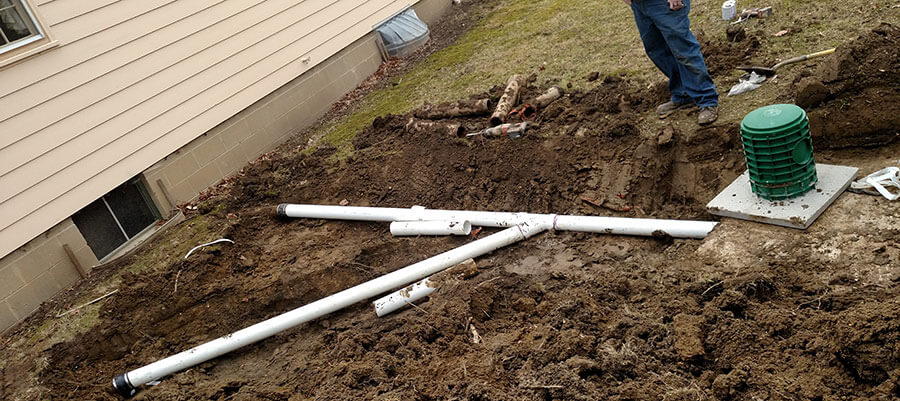If you own a house that has an onsite waste management system, you may already know the importance of maintaining it properly.
Proper maintenance will keep the septic system in good working condition for years on end.
However, even with the utmost care, accidents often happen and you may find yourself in need of repairing your system.
If that happens, you will want to ensure you are doing everything by the book to avoid getting in hot soup.
For instance, make sure you have all the required permits before you get started.
Do You Need A Permit To Repair Your Septic System?

You will need a permit before you can carry out any repairs on your septic system.
As the EPA points out, the different permitting authorities (local environmental or health departments) will have different procedures and permits that are required for repairs.
For the most part, any work that is classified as altering, extending, or repairing a septic tank will require a permit.
If you are a hands-on type of person, you can apply for the permit yourself but you could also ask your contractor to apply on your behalf.
A septic system repair can either be a minor or a major repair.
Minor repairs include replacing distribution systems, broken pipes, or any other component that is not part of the drain field.
Any work that involves the repair or replacement of the drain field is major repair and will require a qualified contractor.
Depending on your jurisdiction, you may need a different permit for a major repair than you would for a minor one.
Septic Tank Repair Permit Costs
The cost of the permit will depend on your jurisdiction as well as on the type of permit you are applying for.
Ideally, permits for domestic properties are cheaper and easier to process than commercial properties.
As an example, residents of New York will spend anything from $300-$500 for a permit to work on their septic tank.
However, the cost for New York City commercial properties will typically cost $500 – $1500.
Some cities may charge a cheaper rate for their permits.
For instance, Mecklenburg County in North Carolina only charges $100 – $300 for a septic tank repair permit depending on the scope of work.
In other regions, permits are only charged for the installation of new systems while free permits are issued for any repair work.
A good example of this is the Tennessee State Government which only charges $100 for a conventional septic system installation permit but issues free permits for any repair work.
Do You Need A Permit For Routine Maintenance?

Every homeowner with a septic system on their property is required to carry out routine maintenance of the system.
You are not required to get a permit for this as it is expected to be a day-to-day activity.
Routine maintenance entails the following:
- Pumping the septic tank every 2-5 years depending on your local regulations
- Cleaning the effluent filter
- Replacing the access lid in the event it breaks or gets damaged in any other way
- Replacing a float switch
- Landscaping around the septic tank and drain field area
- Removing roots and other minor repairs that may not touch the septic tank directly
Even though you do not need a permit for routine maintenance, some jurisdictions require you to have an operational permit.
This permit is usually given after a successful installation of a septic system on a new property.
The permit is typically given after the city inspects the system and ascertains that the septic system was built in adherence to the laid down regulations.
If required by your local authority, this permit will only be issued once when the septic tank is installed.
If you are buying an old house, you may want to ask the former owner for the document.
Do I Need A Permit To Replace My Drain Field?
Yes, you will need a permit to replace your drain field.
There are two main reasons why a permit is needed for replacing drain fields.
First, replacing your drain field is typically necessitated by a failed septic system.
This may mean the system was polluting the environment and you are working on fixing the problem.
As such, your municipality will need to inspect the process to ensure the new drain field is built properly to ensure the pollution is curbed.
Also, the inspection will help determine whether you should only be replacing the drain field or if you need to overhaul the entire system.
The second reason why a permit is needed for the replacement of a drain field is to keep a record of the new and old locations of the septic system leach field.
Keeping a record of any significant change on the system is important for future use.
For instance, if you sell your property, the new owner will rely on the records to know how best to continue maintaining and or repairing the system.
Can I Repair The Septic System Without A Contractor?
Most DIY enthusiasts are always excited at the prospect of taking on a new project and it makes sense that they would also love to do any repair work on their septic tank without hiring a contractor.
Even though it may not be illegal to work on the septic system yourself, I strongly advise against it.
Instead, just apply for a permit from the local authority and then hand over the work to a qualified contractor.
Septic tanks have gases like hydrogen sulfide and ammonia which can be quite toxic especially if inhaled in large quantities.
Some fatalities have even been reported and so it is a good idea to let the pros handle the job.
Contractors are specially trained to work in a toxic environment and they also have the right gear to keep the safe while doing their work.
Parting Thoughts
Do you have a septic system on your property?
If you do, make sure you are in the know about the legislation of septic system maintenance as per your local government.
As we have seen, some jurisdictions will require getting a permit for even minor repairs.
It is in your best interest to follow these guidelines to avoid any unpleasant surprises in the future.
Related: What Is An Illegal Septic System?
